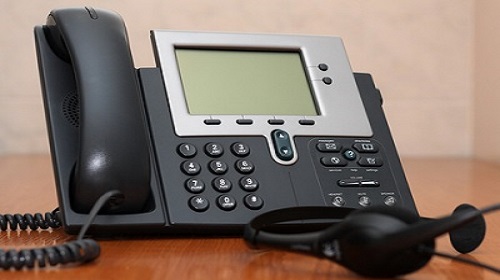Corporate Voicemail: Is It Dead?
The ability for one person to send a quick message to another was one of many steps in revolutionizing the way we communicate within our corporate environments. For years, messaging through voicemail has been standard practice. But with the advent of computers and Internet technology, new options for exchanging information have become readily available, although until recently voicemail always held a solid spot in our workaday world.
Coke Axes Corporate Voicemail
In a December 22, 2014 article, Bloomberg.com reported that Coca-Cola Co. shut down the majority of voicemail services at its Atlanta headquarters. A spokeswoman for the soft drink giant estimated the cost savings to be less than $100,000 – a pittance for a company with annual revenues topping $46 billion.
The reason for the discontinuance wasn’t about money but rather to “simplify the way we work and increase productivity,” Coke’s chief information officer said in a memo to Bloomberg.
Part of the issue is simply generational. Younger workers have grown up in an age in which chat, Apple Facetime, Social Media, and email were the primary avenues for communication. Many simply don’t use telephone or voicemail in particular.
In his book When Generations Collide, David Stillman and Lynne C. Lancaster point out that Generation X and Millennials simply view the world differently and work very differently than Baby Boomers.
With text, instant messaging, email, live chat and other communication and message-sending abilities available to just about everybody, voicemail could likely start trending toward the way of the dinosaur.
Look at these numbers from a recent eVoice survey: only 33% of people play back voicemails from business colleagues; 82% of people don’t listen to voicemails from unknown numbers.
Those numbers alone help us to understand why Coca-Cola would consider voicemail an unproductive technology. In the eyes of many business and personal users of voicemail, the system is being seen more and more as tedious and time-consuming.
Voicemail Efficiency vs. Other Business Messaging Platforms
When receiving an email or text message, the recipient can easily scan for critical information and pause to put some thought into complex sections. The message remains there, right before their eyes. When listening to a voicemail, on the other hand, one must have the presence of mind to absorb the entire message, sight unseen. If this doesn’t happen, the message has to be replayed and notes may have to be taken.
For companies whose success depends in large part on how employees use their time, voicemail is fast becoming considered a time-wasting form of business messaging.
Coca-Cola did retain voicemail capability, allowing employees to keep using it if they could show that it was a “business critical need.” At the time of the Bloomberg article, six percent of Coke’s employees demonstrated this need and kept the service.
Is the Telephone Next?
Just as messaging through the voicemail platform may soon be a thing of the past, so might much of traditional telephone communication, where many inner-office calls start with something important but segue into talk about the latest hail storm or whether Mike Tyson in his prime could beat Muhammad Ali. With text messages, IM, email and other convenient communications tools, the potential for time-wasting is significantly reduced and best business practices are more closely adhered to.
Companies large and small will likely follow Coke’s corporate voicemail lead in the months and years ahead. With so many methods available to share information, it seems unlikely that businesses would continue to opt for a less-efficient method.











